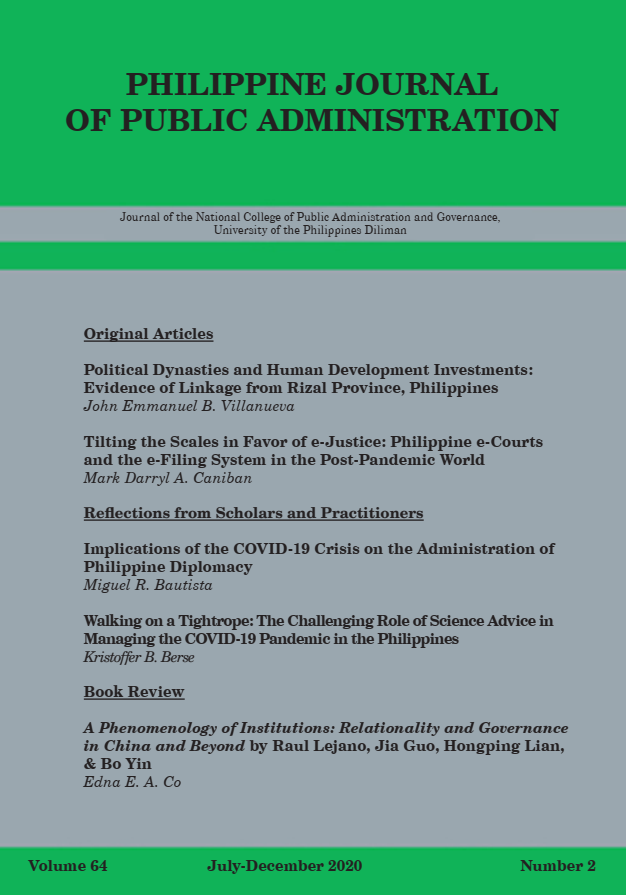Tilting the Scales in Favor of e-Justice: Philippine e-Courts and the e-Filing System in the Post-Pandemic World
Abstract
The Philippine government has recently made significant steps in automating public services, such as online payment of taxes, setting up of online applications for registrations, permits and licenses, and customer service hotlines. However, the judiciary lagged behind in adopting these innovations and was still largely paper-based until the emergence of the coronavirus disease 2019 (COVID-19) pandemic. This article discusses the development, importance and implications of electronic courts (e-courts) and the electronic filing (e-filing) system in a pre- and post-pandemic world. Gleaning from a review of secondary data, official documents and reports, jurisprudence, and case studies on other legal jurisdictions and international courts that make use of electronic systems, this study identifies the following benefits of the e-court and e-filing system: (a) efficient use of paper and cost savings in hiring judiciary personnel; (b) remote online access to court services and remote storage of court records and information; and (c) convenience through submission of pleadings and legal papers beyond the close of business day. The study also highlights the risks and stumbling blocks in the e-court and e-filing system: (a) cost of infrastructure and manpower, (b) integrity of files, and (c) digital privacy of litigants. Judicial administrators are called to formulate e-court and e-filing strategies that take into account the need for free access to courts and speedy trial, as well as health-related safeguards in litigation and pleading submission. With the emergence of critical junctures, such as the COVID-19 pandemic, the judiciary’s efforts in incorporating technological innovation in the dispensation of justice have been accelerated and finetuned to suit the needs of the litigating public in the time of the “new normal.”



